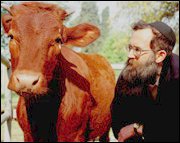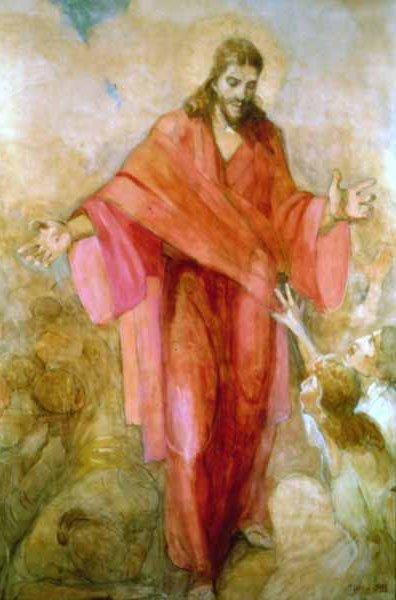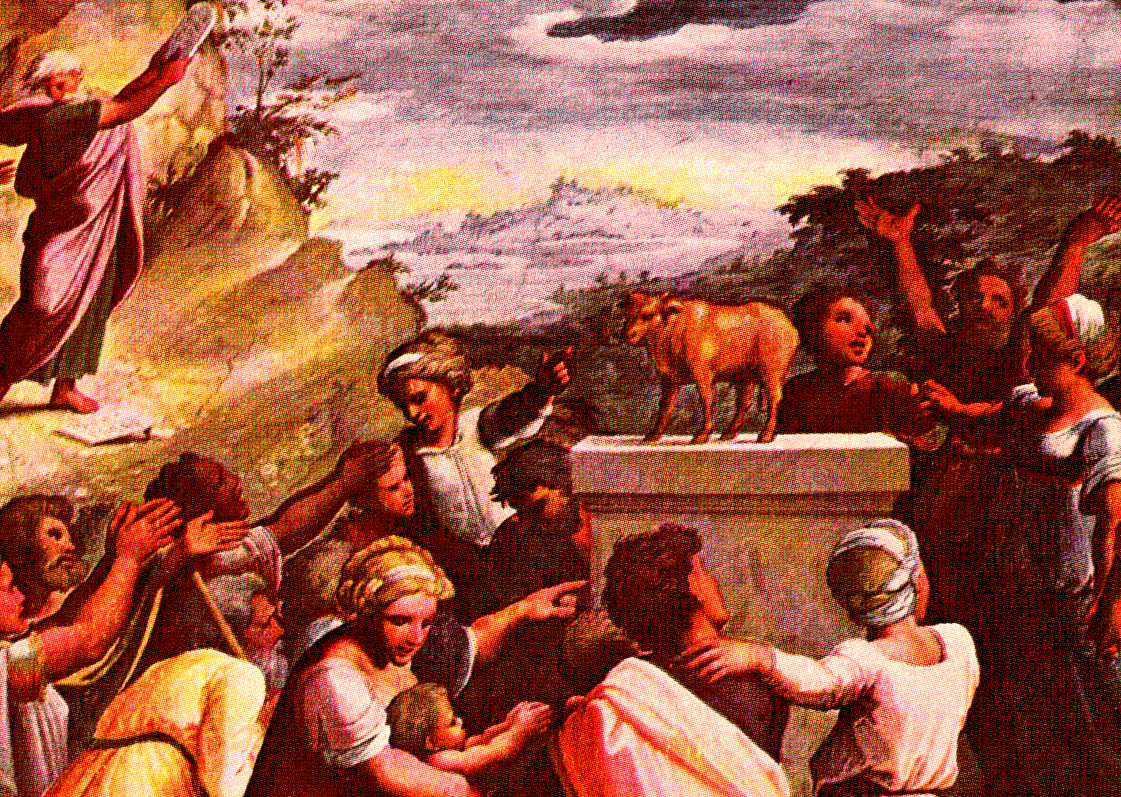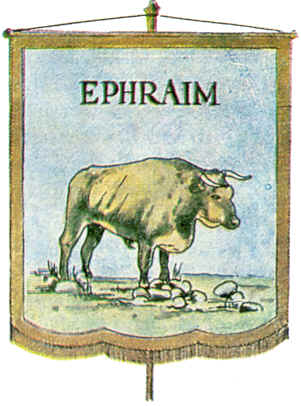|
|
|
|
 CHAPTER 19
CHAPTER 19
 Directions given for sacrifice of red heifer—Water of separation used for purification from sin—Ceremonially unclean persons sprinkled with water of separation. |
Directions for the ceremonial ordiance of the sacrifice of the 'red heifer', the preserving of its ashes and their cleansing effect upon those who have been associated with the dead—Water treated with those ashes of separation used for purification from sin—Ceremonially unclean persons who have associated with the dead sprinkled with the ash water of separation. |
 Jesus = Red Heifer |
The Red Heifer and Death
The association of the special cleansing sanctification of the
ordinance of the Red Heifer has been slightly misunderstood. Whereas it has
|
||
|
1 And the LORD spake unto Moses and unto Aaron, saying,
2 This is the ordinance of the law which the LORD hath commanded, saying, Speak unto the children of Israel, that they bring thee a red heifer without spot, wherein is no blemish, and upon which never came yokea: |
2a a red heifer without spot, wherein is no blemish, and upon which never came yoke While all the sacrifices of the Law of Moses did point unto and foreshadow that of Jesus Christ, in this particular ordinance there is a particular inference to not only Jesus Christ but unto that relationship which would exist between Christ and the priests of the temple at the time of his crucifixion. That the particularly 'red heifer', the heifer or bull being the symbol of the tribe of Ephraim (See Messiah ben David ~ Messiah ben Joseph), is used in relation to Jesus' crucifixion and his relationship to the priests and the select elders of the Jews of the Sarim or Sanhedrin of Jerusalem seems very significant. Note in verse 6 the particular elements which are very unceremoniously cast upon the heifer of the sacrifice. |
1a
Lev. 10:1 (1-2) 2a Heb. 9:12 (7, 12, 24-25); Heb. 10:19 (19-22) b TG Veil c Ex. 25:22; Ex. 29:42 (42-43); Ex. 40:34 (34-35); D&C 97:16 (15-17); D&C 109:5 (5, 12-13); Abr. 2:19 (19-20)
|
|
3 And ye shall give her unto Eleazar the priest, that he may bring her forth without the camp, and one shall slay her before his face:
4 And Eleazar the priest shall take of her blood with his finger, and sprinkle of her blood directly before the tabernacle of the congregation seven times: 5 And one shall burn the heifer in his sight; her skin, and her flesh, and her blood, with her dung, shall he burn: 6 And the priest shall take cedar wood, and hyssop, and scarlet, and cast it into the midst of the burning of the heifera. |
6a take cedar wood, and hyssop, and scarlet, and cast it [them] into the midst of the burning of the heifer The cedar wood of the cross and/or its attached sign of identification, the hyssop administered unto Christ on the cross, and the scarlet robe placed upon him in mockery; are all elements which point to and do foreshadow Christ's crucifixional events associated with his suffering sacrifice. Beyond this, there is also a reference in verse 12 to the final fullfilling act of the resurrection 'on the third day'. |
1a
Lev. 10:1 (1-2) 2a Heb. 9:12 (7, 12, 24-25); Heb. 10:19 (19-22) b TG Veil c Ex. 25:22; Ex. 29:42 (42-43); Ex. 40:34 (34-35); D&C 97:16 (15-17); D&C 109:5 (5, 12-13); Abr. 2:19 (19-20)
|
The Red Heifer ~ The Golden Calf ~ Ephraim ~ Jesus Christ
There is a correlation between the red heifer and the golden calf
which the children of Israel determined to worship, there is also such a
|
||
|
7 Then the priest shall wash his clothes, and he shall bathe his flesh in water, and afterward he shall come into the camp, and the priest shall be unclean until the even.
8 And he that burneth her shall wash his clothes in water, and bathe his flesh in water, and shall be unclean until the even. 9 And a man that is clean shall gather up the ashes of the heifer, and lay them up without the camp in a clean place, and it shall be kept for the congregation of the children of Israel for a water of separation: it is a purification for sin. 10 And he that gathereth the ashes of the heifer shall wash his clothes, and be unclean until the even: and it shall be unto the children of Israel, and unto the stranger that sojourneth among them, for a statute for ever. |
1a
Lev. 10:1 (1-2) 2a Heb. 9:12 (7, 12, 24-25); Heb. 10:19 (19-22) b TG Veil c Ex. 25:22; Ex. 29:42 (42-43); Ex. 40:34 (34-35); D&C 97:16 (15-17); D&C 109:5 (5, 12-13); Abr. 2:19 (19-20)
|
|
|
11 ¶ He that toucheth the dead body of any man shall be unclean seven days.
12 He shall purify himself with it on the third daya, and on the seventh day he shall be clean: but if he purify not himself the third day, then the seventh day he shall not be clean. |
12a purify himself with it on the third day The Atonement of Jesus Christ is not complete without the resurrection unto that degree of exhalted or purified state of the body and spirit which Christ did complete 'on the third day'. This is a further connecting element with the ordinance of the 'red heifer' pointing specifically to the events of the Lord's crucifixion (death) and resurrection—the events of his Atonement. | |
Much to Do About
Now all the remaining verses almost seem unrelated to the ceremony of the ordinance of the red heifer itself as it continues to speak of one's being unclean in relation to dead bodies. Now that is unless one comes to understand that the Priests and members of the Sanhedren did persist in their close observance of the care of the dead body of Christ. They in particular whated to be sure he was dead and that he would not rise again. They even went to the tomb to inspect the body and oversee the placing of the large stone over the door of the tomb and even the guarding of the body. And even more in particular, they would have done this on the Jewish sabbath, for it was all that the followers of Jesus could do was to place him in the tomb before the sabbath began, his death was so near the setting of the sun in time. And it is likely that these priests and memebers of the Sarim did not advertise their having associated themselves with the body of the dead Jesus by invoking such as the ordiance of the 'red heifer' in their cleansing of themselves, or even if they did, the irony of them seeking to be cleansed by that same as they had so crucified is overwhelming. How could they have not recognized the association of the two, the ordinance of the red heifer, the atoning sacrifice of Jesus, and the required cleansing by the 'ashes' of the 'red heifer'? |
||
|
13 Whosoever toucheth the dead body of any man that is dead, and purifieth not himself, defileth the tabernacle of the LORD; and that soul shall be cut off from Israel: because the water of separation was not sprinkled upon him, he shall be unclean; his uncleanness is yet upon him.
14 This is the law, when a man dieth in a tent: all that come into the tent, and all that is in the tent, shall be unclean seven days. |
||
|
15 And every open vessel, which hath no covering bound upon it, is unclean.
16 And whosoever toucheth one that is slain with a sword in the open fields, or a dead body, or a bone of a man, or a grave, shall be unclean seven days. |
||
|
17 And for an unclean person they shall take of the ashes of the burnt heifer of purification for sin, and running water shall be put thereto in a vessel:
18 And a clean person shall take hyssop, and dip it in the water, and sprinkle it upon the tent, and upon all the vessels, and upon the persons that were there, and upon him that touched a bone, or one slain, or one dead, or a grave: 19 And the clean person shall sprinkle upon the unclean on the third day, and on the seventh day: and on the seventh day he shall purify himself, and wash his clothes, and bathe himself in water, and shall be clean at even. |
||
|
20 But the man that shall be unclean, and shall not purify himself, that soul shall be cut off from among the congregation, because he hath defiled the sanctuary of the LORD: the water of separation hath not been sprinkled upon him; he is unclean.
21 And it shall be a perpetual statute unto them, that he that sprinkleth the water of separation shall wash his clothes; and he that toucheth the water of separation shall be unclean until even. 22 And whatsoever the unclean person toucheth shall be unclean; and the soul that toucheth it shall be unclean until even. |
||
 been so associated with merely the contact with a dead corpse, it ought to be
noted that while this is a part of that death of which man is cleansed, it is
not merely coming in contact with a dead person in relation to a death and
funeral process. The death from which man is cleansed by the ceremonial
ordinace of the red heifer is that of both physical death and spiritual death.
Jesus Christ who is Jehovah is he whom the red heifer does symbolize
specifically. For as by man came death, by man call also the resurrection of
the dead. For as in Adam all die, even so in Christ shall all be made alive.
All who have entered in to this mortality of this second estate have become
associated with and contaminated by 'death', both physical and spiritual. And
only in and through that sacrifice of God Jehovah as Jesus Christ is this
contamination of death removed. This is that which the ceremony and ordinance
of the Red Heifer does represent. Christ does take upon himself the sins of
all who do come unto him and repent thereof thus over coming that Spiritual
Death from the presence of God the Father of Spirits. And also in Christ is
the death of the grave overcome in the promised resurrection of the dead by
the restoring of man's spirit to his body of flesh and bones into the
immortal state.
been so associated with merely the contact with a dead corpse, it ought to be
noted that while this is a part of that death of which man is cleansed, it is
not merely coming in contact with a dead person in relation to a death and
funeral process. The death from which man is cleansed by the ceremonial
ordinace of the red heifer is that of both physical death and spiritual death.
Jesus Christ who is Jehovah is he whom the red heifer does symbolize
specifically. For as by man came death, by man call also the resurrection of
the dead. For as in Adam all die, even so in Christ shall all be made alive.
All who have entered in to this mortality of this second estate have become
associated with and contaminated by 'death', both physical and spiritual. And
only in and through that sacrifice of God Jehovah as Jesus Christ is this
contamination of death removed. This is that which the ceremony and ordinance
of the Red Heifer does represent. Christ does take upon himself the sins of
all who do come unto him and repent thereof thus over coming that Spiritual
Death from the presence of God the Father of Spirits. And also in Christ is
the death of the grave overcome in the promised resurrection of the dead by
the restoring of man's spirit to his body of flesh and bones into the
immortal state.
 correlation between the heifer and the bullock symbol of the tribe of Ephraim
and all such correlations are surmised in Christ. The sacrifice of the red
correlation between the heifer and the bullock symbol of the tribe of Ephraim
and all such correlations are surmised in Christ. The sacrifice of the red
 heifer dates back to that which pertains to the Abrahamic Covenant and in that
age it did also represent the cleansing from death. Moses would have explained
and Israel understood that the 'heifer' was a representation of the Lord God
of Salvation to come. Aaron's golden calf symbol of the Messiah was not
intended as an Egyptian idol to be easily corrupted into the sacred cow of the
goddess Hathor (House of the Living God (Horus)). Aaron made the golden calf
for Israel as the symbolic representation of the Son of God, the Living God,
who would be sacrificed for their sins in overcoming death. The error of the
children of Israel was to take the sacrifical symbol of the calf and make it
an item of worship in and of itself rather than looking beyond it to Christ.
Fittingly the corresponding symbol of the tribe of Ephraim was also the bull
or heifer. And from thence it is not but a small step of understanding to
grasp that in relation to the coming Messiah, that the heifer of sacrifice
which was given to represent the sacrifice of Jesus Christ was also that which
did signify that of Ephraim would the Messiah, even Messiah ben Ephraim, come
(see:
heifer dates back to that which pertains to the Abrahamic Covenant and in that
age it did also represent the cleansing from death. Moses would have explained
and Israel understood that the 'heifer' was a representation of the Lord God
of Salvation to come. Aaron's golden calf symbol of the Messiah was not
intended as an Egyptian idol to be easily corrupted into the sacred cow of the
goddess Hathor (House of the Living God (Horus)). Aaron made the golden calf
for Israel as the symbolic representation of the Son of God, the Living God,
who would be sacrificed for their sins in overcoming death. The error of the
children of Israel was to take the sacrifical symbol of the calf and make it
an item of worship in and of itself rather than looking beyond it to Christ.
Fittingly the corresponding symbol of the tribe of Ephraim was also the bull
or heifer. And from thence it is not but a small step of understanding to
grasp that in relation to the coming Messiah, that the heifer of sacrifice
which was given to represent the sacrifice of Jesus Christ was also that which
did signify that of Ephraim would the Messiah, even Messiah ben Ephraim, come
(see: